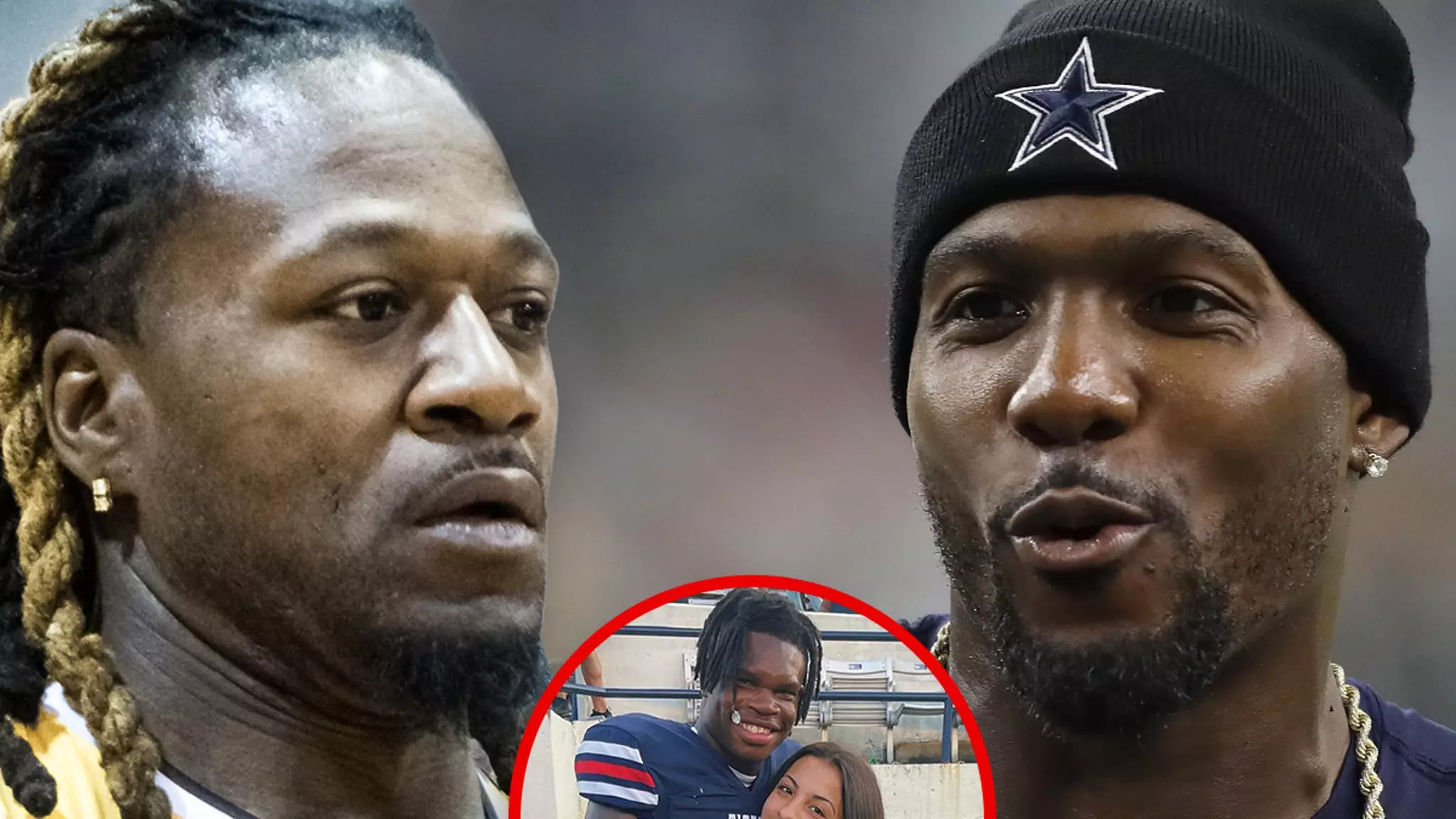In the world of sports, personal lives of athletes often become public topics of discussion, sometimes even overshadowing their on-field achievements. Recently, a notable incident involving former NFL players Pacman Jones and Dez Bryant has showcased how athletes can react to perceived overreach in discussing their peers’ private affairs. Jones’s criticism of Bryant’s comments on Travis Hunter’s relationship with fiancée Leanna Lenee provides an illuminating case study into the boundaries of public discourse around athletes’ personal lives.
During a segment on his podcast, “Pacman Jones Show,” Jones expressed his frustrations openly regarding Bryant’s unsolicited advice about Hunter’s romantic relationship. He urged his fellow athlete and commentator to “shut the f*** up,” suggesting that personal insights about relationships should remain private unless the involved parties choose to share them publicly. Jones articulated that outsiders lack the full picture and, therefore, should refrain from commenting on situations they do not fully understand.
Jones’s vehement response highlights a growing concern among athletes about the invasion of their privacy by fans and commentators alike. His assertion that no one has the right to critique the dynamics of another’s romantic engagement resonates with the sentiment that each individual’s situation is unique and often more complex than it appears to an outsider.
Many fans and analysts have indulged in a speculative narrative surrounding Hunter and Lenee—often with little basis beyond surface observations. That Bryant took to his social media to question Hunter’s relationship choices only amplified the scrutiny that often accompanies young athletes, especially when they achieve fame and success at an early age.
By jumping to conclusions based solely on social media interactions, commentators risk distorting the truth. The public discourse surrounding Hunter and Lenee’s relationship has transformed into what Jones aptly critiques: a spectacle devoid of the respectful boundaries that should exist between public figures and their personal lives.
The current digital landscape has equipped fans and analysts with immense platforms to share their thoughts—often turning innocent observations into unwarranted criticism. This dynamic presumes that athletes owe the public explanations of their choices, further contributing to harmful narratives. As Jones pointed out, it is bewildering to witness fellow athletes exploiting social media to vent their opinions on each other’s lives, detracting from the spirit of camaraderie that should ideally exist within professional sports.
Moreover, as social media continues to evolve, it blurs the lines between public and private spaces, leaving athletes vulnerable to both praise and censure. Jones’s plea for respect for Hunter’s personal choices underscores the need for a cultural shift in how we discuss athletes’ private lives, advocating a more empathetic approach towards their individual circumstances.
The recent exchange between Pacman Jones and Dez Bryant reveals significant truths about the treatment of athletes in the public eye. As society increasingly consumes and scrutinizes their lives online, it’s imperative to uphold respect and privacy. Moving forward, athletes deserve the courtesy to navigate their personal affairs without undue pressure from their peers and the public, fostering a culture that values individual autonomy over sensational scrutiny.

